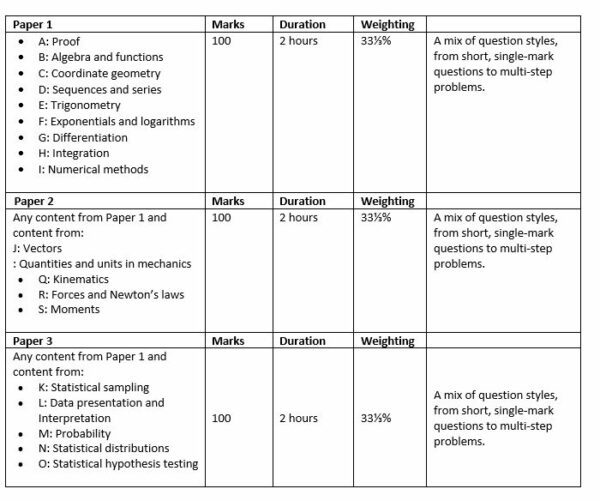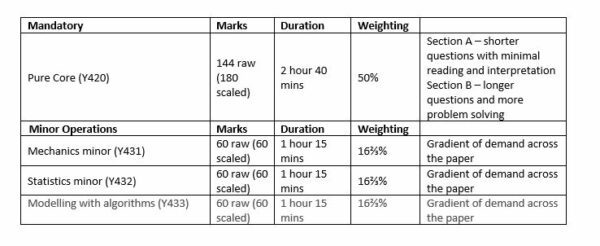Head of Faculty
Mr D Byrne
Members of Faculty
| Name | Role | |
|---|---|---|
| Mr Richardson | Teacher of Mathematics/Assistant Head of Faculty | |
| Miss Jesa | Teacher of Mathematics/Assistant Head of Faculty | |
| Mrs Dsouza | Teacher of Mathematics | |
| Ms Durrance | Teacher of Mathematics | |
| Mr Damji | Teacher of Mathematics | |
| Mr Pistikos | Teacher of Mathematics | |
| Mrs Ankle | Teacher of Mathematics | |
| Mrs Masadza | Teacher of Mathematics/Economics/Business | |
| Mrs Chan | Teaching Assistant | |
Maths Curriculum Intent Statement
GCSE Mathematics: Exam board AQA
Paper 1: Non calculator
What’s assessed: Content from any part of the specification may be assessed
How it’s assessed
- written exam: 1 hour 30 minutes
- 80 marks
- non-calculator
- 33⅓% of the GCSE Mathematics assessment
Questions: A mix of question styles, from short, single-mark questions to multi-step problems. The mathematical demand increases as a student progresses through the paper.
Paper 2: calculator
What’s assessed: Content from any part of the specification may be assessed
How it’s assessed
- written exam: 1 hour 30 minutes
- 80 marks
- calculator allowed
- 33⅓% of the GCSE Mathematics assessment
Questions: A mix of question styles, from short, single-mark questions to multi-step problems. The mathematical demand increases as a student progresses through the paper.
Paper 3: calculator
What’s assessed: Content from any part of the specification may be assessed
How it’s assessed
- written exam: 1 hour 30 minutes
- 80 marks
- calculator allowed
- 33⅓% of the GCSE Mathematics assessment
Questions: A mix of question styles, from short, single-mark questions to multi-step problems. The mathematical demand increases as a student progresses through the paper.
What we expect from pupils:
- Pupils are expected to come to lessons equipped with the necessary equipment. It is essential that they have their own geometry set and a scientific calculator so they become proficient in the use of this equipment.
- Pupils are encouraged to present their work in a neat and orderly fashion, showing all their working. Care of school property is a priority and pupils must look after any books/equipment issued to them.
- Homework is normally set twice a week; one short key skills homework and one related to class work. Pupils are expected to do homework as set and to the best of their ability showing all calculations.
GCSE Further Mathematics
A selected small number of students from set 1 study for a second GCSE in Mathematics. Information can be found here or by contacting Mr Byrne at school.
Programme of Study KS5
This course is for students wishing to further their mathematical knowledge and those wishing to study Mathematics or a related subject at Higher Education, e.g. engineering, computer science, business and economics.
A-level Maths AQA 7357 Specification

Further Mathematics A level
For gifted mathematicians we also offer an A level in further Mathematics. This course could prove invaluable to any student wishing to study Mathematics or a Mathematics related subject at a top university. This course is highly recommended for any student who has a genuine love of the subject and wants to expand their understanding and depth of knowledge.

Further Mathematics B (MEI) – H645 (from 2017)
Key Stage 3 and 4
The mathematics curriculum is organised so as to provide an appropriate level for each pupil. Details of what is covered in each year can be found in the links below:
Stage 7 (year 7 sets 1 and 2. Year 8 set 3 and 4)
Stage 8 (year 8 sets 1 and 2. Year 9 set 3 and 4)
Stage 10 Foundation (year 10 set 3, 4 & 5)
Stage 10 Higher (year 10 set 1 and 2)

